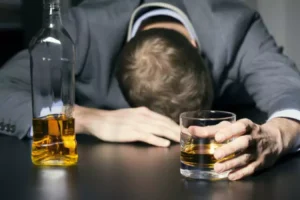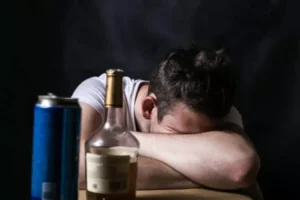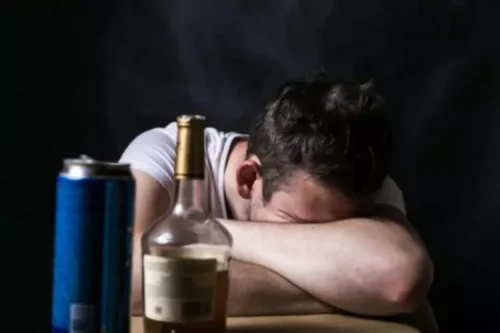
Some people take pain relievers to prevent hangover symptoms. But ask your healthcare professional if this is safe for you and how much medicine is best for you. These medicines may not work well together with other medicines you take. Hangovers after a single night’s drinking go away on their own. Talk with your healthcare professional if you’re concerned that frequent heavy drinking may lead to serious problems, such as alcohol withdrawal.

Why does alcohol do this?
- In the study, participants using red ginseng had lower concentrations of ethanol and increased acetaldehyde levels compared with placebo.
- This is unlikely to elevate your blood alcohol content to a level where it would come back down substantially, so giving you the symptoms of a hangover.
- In this article, read about hangover duration, remedies, prevention, and when to consult a doctor.
- The Stanford findings come on the heels of research challenging the long-held notion that light to moderate drinking may be good for you.
If you’re not feeling any better after 24 hours, it’s best to check in with your healthcare provider. For one, it gets you intoxicated faster and makes day-after misery a lot more how long does a hangover last likely. Plus, hangovers tend to be more severe after drinking on an empty stomach. For people living with heart disease, hangover symptoms such as rapid heart rate and high blood pressure can be dangerous.

This new ‘natural’ sleep supplement was designed by an anesthesiologist and ketamine therapy doctor
So if you want to try and avoid a hangover in the future, opt for lighter spirits like gin or vodka over whisky or rum, white wine over red. You could also opt for drinks with a lower ethanol content, like low alcohol wine. Several factors contribute to the cause of a hangover, but the catalyst for severe hangover symptoms is poor timing. This is because the time a hangover will last all depends on how quickly your body can work through the alcohol. In some instances, symptoms of a hangover can begin before the effects of alcohol have worn off.
Contents
The presence of food in the stomach reduces the rate of alcohol absorption into the blood. Slowing the rate of alcohol absorption will reduce the risk of a severe hangover. There are no instant hangover cures, Sobriety but doctors recommend waiting at least 48 hours before drinking again to give your body time to recover.

What causes hangovers?
Symptoms of dehydration – dizziness, nausea, head and neck tension – is mirrored in hangover symptoms. Without adequate hydration, you are more likely to feel acute symptoms of a hangover. The only hangover cure is drinking less to begin with, but there are ways to combat the effects of drinking that may otherwise make you feel ill in the morning.

The signs of persistent nausea/vomiting are feeling nauseated for many hours along with multiple episodes of vomiting in which you cannot keep down any fluids. Dehydration symptoms include dizziness, lightheadedness, fast heartbeat, irritability, and fainting. If you feel too impaired to operate a vehicle, make decisions, etc., then it may be a good idea to wait a few hours until you feel capable of doing so. Since your liver can only process a certain amount of alcohol per hour, you will feel its effects if you consume more than your body can =https://ecosoberhouse.com/ process in a certain period. The more quickly you drink, the higher your blood alcohol levels rise, which can be dangerous if you are consuming alcohol quickly in a short period or binge drinking.
Often, intravenous (IV) fluids can help alleviate the symptoms. But sometimes severe issues, such as vomiting or coughing blood need to be addressed with more intensive medical attention. It is commonly believed that the symptoms of a hangover are produced primarily by dehydration, however, this has not been proven. There is also a direct toxic effect of the alcohol itself, which is thought to contribute to hangover severity. These symptoms include dehydration, depression, headache, anxiety, appetite suppression, difficulty concentrating, nausea, and sleepiness. The severity of a hangover is determined principally by the number of drinks taken but can also be affected by the type of alcohol used, the genetic makeup of an individual, and an individual’s sex.

- Florida is averaging the fourth-most goals this season (3.65 per game) by being the opposite of a one-line wonder.
- The only hangover cure is drinking less to begin with, but there are ways to combat the effects of drinking that may otherwise make you feel ill in the morning.
- “Matthew brings an intensity to the game every night. He’s just wired into it. He’s not faking it. That’s just the way he is when the puck is dropped, and that’s infectious.”
- Consuming many drinks in a short period increases the likelihood of a hangover after the effects of alcohol wear off.
- But there’s no easy way to know how much you can safely drink and still avoid a hangover.
Certain medications may help ease symptoms, particularly headaches. However, acetaminophen (an alternative to aspirin) can cause liver damage. Drinking too much alcohol can lead to dangerous impairment, sometimes called acute alcohol exposure. “There is a blood brain barrier, which acts as a gateway for substances like proteins and nutrients to get into the brain. Alcohol crosses this barrier very quickly, which is why acute alcohol exposure happens,” says Northwestern Medicine Neurologist Kapil Sachdeva, MD. For as common as they are, there is still much to be understood about hangovers.
With anti-nausea, anti-inflammatory, and anti-heartburn medications on top of hydrating fluids, you could be feeling better within a few hours of receiving your intravenous treatment. This over-consumption of alcohol puts stress on your system, which is unable to function properly due to high alcohol intake. How you experience what it is to have a ‘hangover’ depends on how much you drink and a combination of other factors, such as hydration, blood sugar levels, age, and genetics. Much like everything to do with the body, everyone is different when it comes to how they respond to alcohol. We all know someone who can have drink after drink, only to wake up feeling fresh in the morning, and others who have stopped drinking entirely thanks to awful hangovers.